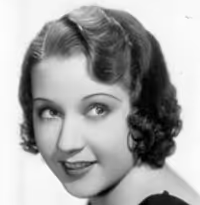Curse of the Starving Class
#1Curse of the Starving Class
Posted: 2/12/25 at 10:51am
Any reports on the New Group's production, which went into previews last week? I love the play, found the previous Signature revival pretty disappointing, but the cast here seems more interesting, at least on paper.
#2Curse of the Starving Class
Posted: 2/14/25 at 12:06am
I need to sit with this one for a while. I’d never read this nor seen it before tonight and it was, well I don’t even know. It’s a very odd play that I don’t know if I “got” right off the bat. I want to read some analyses of it and do a deeper dive.
#3Curse of the Starving Class
Posted: 2/14/25 at 12:20am
Jordan Catalano said: "I need to sit with this one for a while. I’d never read this nor seen it before tonight and it was, well I don’t even know. It’s a very odd play that I don’t know if I “got” right off the bat. I want to read some analyses of it and do a deeper dive."
It's Shepard - you may NEVER "get" it!
#5Curse of the Starving Class
Posted: 2/19/25 at 1:33pm
This just extended into my trip window. I am interested in seeing it, but was hoping for some more reactions/reviews!
#6Curse of the Starving Class
Posted: 2/19/25 at 5:20pm
sm33 said: "This just extended into my trip window.I am interested in seeing it, but was hoping for some more reactions/reviews!"
Well for one thing, this is a three act play and they jammed two of the acts together to allow for only one brief intermission over its nearly three hour running time.
#7Curse of the Starving Class
Posted: 2/20/25 at 10:45pm
I think this is rife with all sorts of meaning and metaphor about escaping poverty, and some of it sticks and a lot of it doesn’t. Maybe it’s because so much media recently is about inherited trauma from our families (Hell, even Disney did it in Encanto) that seeing something like this doesn’t quite hit as hard in 2025. To be honest I think a it’s because lot of the meaning is tied to the son, whose acting I thought was so insanely flat and lifeless and meandering. I never understood who he was, so then when he starts going off the deep end it wasn’t adding up to me. Some of the directorial choices were also confounding. A lot of facing upstage.
It’s definitely an uncomfortable experience to sit thru, but that’s not necessarily bad. Thought provoking for sure. I really just don’t know what to think.
Calista Flockhart accidentally kicked an artichoke into the air and an audience member caught it and everyone was cracking up. They needed a minute to gather themselves. Was a bit of levity in this heavy production .
MemorableUserName
Broadway Legend Joined: 3/27/19
#8Curse of the Starving Class
Posted: 2/26/25 at 8:05am
Vulture
Feb. 25, 2025
This Curse of the Starving Class Doesn’t Have Much in Its Fridge
https://www.vulture.com/article/theater-review-curse-of-the-starving-class.html
#9Curse of the Starving Class
Posted: 2/26/25 at 11:50am
Yikes, that's a deadly pan. I wonder what place Shepard's work holds now in the theater world. In my young days, when I was an actor, he was revered. But I can't remember the last time I heard anyone reference anything of his.
#10Curse of the Starving Class
Posted: 2/26/25 at 12:23pm
He is still revered in a lot of theater programs at universities... but I think it's definitely the case that his work has not aged well. Or maybe it's just not the right time for his work.
He's so often imitated, often unintentionally, that his actual work feels derivative or obvious. People are more familiar with the imitations and copies.
Also, I think a lot of the takes on gender and relationships feel gross or maybe even misogynistic when they used to feel "dangerous." We have a production of Fool For Love here in Chicago and the sexual politics just feel "off." The flaws in the production don't help... but I think you would be hard pressed to put over any production of Fool For Love that registers in the same way it did in the 80s.
Finally, I think his work resists re-interpretation. It seems abstract in such a way that it seems like you could radically re-interpret it... cast it creatively... take a director-focused approach... but it's actually very specific. I don't think that's a good thing... but I think it's a reason he has and will fade. I've seen several productions that try to incorporate race or a different cultural perspective but it never quite comes through. I think he was speaking to a specific moment and a specific cultural milieu... and his work is not as universal as it first appears.
two ladies tickets
Featured Actor Joined: 5/21/10
#11Curse of the Starving Class
Posted: 2/26/25 at 12:44pm
Having done this play about 30 years ago I'm very interested in seeing it this week and seeing how it holds up. The play is written in three acts and much like Our Town two intermissions are needed to show passage of time, etc. I see that this current production only utilizes one intermission.
For those that have seen this production and are familiar with the play: do they take the intermission between the first and second act or between the second and third act? I'm assuming it's between the second and third act given there is a scenic sort of transition that needs to happen between those two acts regarding the kitchen. Can anyone confirm?
#12Curse of the Starving Class
Posted: 2/26/25 at 1:11pm
KJisgroovy said: "He is still revered in a lot of theater programs at universities... but I think it's definitely the case that his work has not aged well. Or maybe it's just not the right time for his work.
He's so often imitated, often unintentionally, that his actual work feels derivative or obvious. People are more familiar with the imitations and copies.
Also, I think a lot of the takes on gender and relationships feel gross or maybe even misogynistic when they used to feel "dangerous." We have a production of Fool For Love here in Chicago and the sexual politics just feel "off." The flaws in the production don't help... but I think you would be hard pressed to put over any production of Fool For Love that registers in the same way it did in the 80s.
Finally, I think his work resists re-interpretation. It seems abstract in such a way that it seems like you could radically re-interpret it... cast it creatively... take a director-focused approach... but it's actually very specific. I don't think that's a good thing... but I think it's a reason he has and will fade. I've seen several productions that try to incorporate race or a different cultural perspective but it never quite comes through. I think he was speaking to a specific moment and a specific cultural milieu... and his work is not as universal as itfirst appears."
Yes, different times and different audiences.
Shepherd was basically "poet's theatre". It was about language and actors performing it. At least that's what I remember about the few Robert Woodruff productions that I saw. Woodruff was basically Shepherd's collaborator.
Also, Shepherd was still doing the modernist revolt against what they still saw as "the well made play" and that usually ended up producing rather static plays about existence. And that is strained through a rather druggy post-Beat poetics enlivened by what audiences then saw as a heartland voice. And of course there was also the physical beauty of the playwright himself...
I don't think Scott Ellis is a great fit for Shepherd. I have very much admired his productions of Mike Leigh and David Rabe in the past.
I would have to read the text again to form an opinion on the play's enduring worth.
MezzA101
Broadway Legend Joined: 3/29/23
#13Curse of the Starving Class
Posted: 2/26/25 at 4:55pm
NYT review by Maya Phillips
https://www.nytimes.com/2025/02/25/theater/curse-of-the-starving-class-review-slater-flockhart.html?unlocked_article_code=1.z04.r92-.-FntHJ3Q30ku
#14Curse of the Starving Class
Posted: 2/26/25 at 6:01pm
I always get this one mentally confused with The Tooth of Crime from the same period. But that one is more abstract, a little but Burroughs in its leaning into genre.
#15Curse of the Starving Class
Posted: 2/28/25 at 10:56am
KJisgroovy and sinister teashop, thank you both for such thoughful responses. Really appreciate your insights into what Shepard was doing and how his work reads now.
#16Curse of the Starving Class
Posted: 2/28/25 at 1:04pm
Agreed. I think it just confirms that the writing is there but this production was just meh. The poetic elements should come through — instead they felt like narration.
Videos









